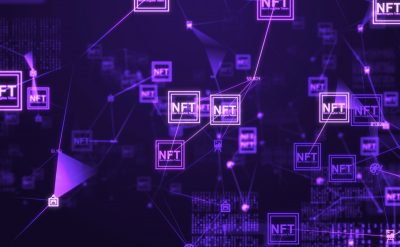Highlights:
- Blockchain technology enables dependable, secure, and safe management and storage of digital identities, providing a consistent, interoperable, and tamper-resistant infrastructure that offers significant benefits for organizations, users, and Internet of Things (IoT) management systems.
- Blockchain technology has the potential to revolutionize digital identity management by providing a decentralized and secure way to store and share identity information.
We are all well aware of blockchain technology, but how much do we know about blockchain on Digital Identity? This blog is all about introducing you to the new market of digital identity blockchain.
As Industry 4.0 spreads, the boundaries of the technological revolution have been surpassed in many ways. Consequently, digital identity has become a critical aspect of digital services. Blockchain technology enables dependable, secure, and safe management and storage of digital identities, providing a consistent, interoperable, and tamper-resistant infrastructure that significantly benefits organizations, users, and Internet of Things (IoT) management systems.
Since digital identity technologies are relatively new in the market, it is crucial to have a good understanding of the impact of blockchain technology on digital identity and its transformative potential. By reviewing the following comprehensive information, you will gain the knowledge necessary to determine whether blockchain is a dependable option for digital identity.
What is Digital Identity, and Why is it Important?
Digital identity refers to an individual or entity’s online representation, including personal data, attributes, and digital behavior. The set of information uniquely identifies a person or organization in the digital world.
There is a common misconception that digital identity only pertains to personal data available online to anyone. However, this notion needs to be narrower, as digital identity encompasses much more than social media profiles, email addresses, and physical addresses.
In reality, it encompasses all the information about you that can be found online, such as pictures, shopping habits, website usage patterns, and even banking information.
Digital identity is related to blockchain as it helps ensure accuracy while speeding up the customer onboarding process. Effective digital identity management is critical to prevent money laundering and fraudulent activity. Furthermore, such management could contribute to streamlining and standardizing citizen services nations provide.
For instance, Singapore’s Smart Nation initiative includes the National Digital Identity (NDI) system, which allows citizens secure access to e-governance services. Nonetheless, if not managed appropriately, digital identity can give rise to privacy and security concerns.
Challenges of Digital Identity Management
While digital identity can provide convenience and effectiveness, it also brings certain risks and challenges due to the increasing prevalence of cyberattacks in the digital age. Therefore, the safe management of data is crucial for online service providers. This requires significant investments and expertise in cybersecurity to implement security measures, develop internal plans for fraud prevention and risk assessment, and effectively tackle the challenges associated with digital identity.
Below are a few more challenges:
- Security: Cybercriminals constantly seek ways to steal identities and personal information. Therefore, it is essential to implement strong security measures such as encryption and two-factor authentication to protect digital identities from being stolen or compromised.
- Privacy: Individuals may be uncomfortable with sharing their personal information online and may not trust the organizations or entities collecting their data. Therefore, it is essential to establish clear privacy policies and give individuals control over their personal information.
- Interoperability: Digital identity systems are often siloed and incompatible with other systems. This can make it difficult for individuals to use their digital identities across different platforms and services. It is important to develop interoperable digital identity systems that can work across different platforms and services to address this challenge.
- Legal and regulatory compliance: Digital identity management must comply with various laws and regulations, such as data protection laws, consumer protection laws, and anti-money laundering laws. Failure to comply with these laws can result in legal and financial consequences.
- User adoption: Finally, adopting digital identity systems can be challenging. Some individuals may need more awareness or trust in the system to refrain from using digital identities. To encourage adoption, it is important to educate individuals about the benefits of digital identity management and provide user-friendly interfaces that are easy to use.
What is Digital Identity in Blockchain?
As per Allied Market Research, the global market size for managing blockchain identities was valued at USD 107 million in 2018 and is anticipated to grow at a CAGR of 79.2% from 2019 to 2026, reaching a market value of USD 11.46 billion.
Decentralization is a defining characteristic of digital identities in blockchain networks, allowing individuals to manage their personal information and exercise greater control over it. These digital identities have diverse applications, including access control, digital signature, voting, and identity verification, which help enhance the security and reliability of the blockchain network by mitigating fraud risks.
Final Words
In conclusion, blockchain technology has the potential to revolutionize digital identity management by providing a decentralized and secure way to store and share identity information. Using blockchain for identity management can help reduce identity fraud, increase user privacy and control, and improve efficiency and convenience for users. However, some challenges need to be addressed, such as interoperability between different blockchain platforms and ensuring the protection of user data. As the technology continues to evolve, it will be interesting to see how blockchain will shape the future of digital identity management.
Blockchain’s decentralized structure makes it ideal for developing data management systems that are both transparent and trustworthy. With blockchain, it is possible to merge various digital identities from different platforms into a single digital identity that the user can control and own. Further research is recommended to gain a deeper understanding of blockchain-based digital identity and its practical applications.













